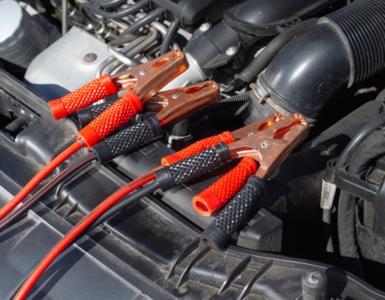A car purchase can be exciting, but it’s easy to get carried away with the excitement. You leave the showroom smiling, only to find out a few days later that you paid too much for your new car because you made one of the many common mistakes people make when buying a car.
That’s when it dawns on you that it’s too late to do anything about it. In that case, what are your options for avoiding it? We’ll address the most common mistakes people make while buying a car as well as how to avoid them.
Top 10 Common Mistakes To Avoid When Buying A Car
1. Being Too Fixated To A Model
Buying a vehicle should not be a very emotional experience. Studies have shown that being overly attached to a specific automobile makes it challenging to recognize other vehicles that may better suit your needs. Instead, research alternative models to determine what you need in a vehicle and compare prices.
2. Negotiating A Lower Price Than The Advertised One
When negotiating a deal, ensure you use the listing price as a guide. Many buyers assume they are getting a great deal when a salesperson offers a discount off the sticker price. Unless the vehicle is in high demand and limited supply, negotiating up from the dealer’s pricing is usually an excellent approach to get a better deal. Knowing the dealer’s actual costs will help you determine their profit margin and negotiate a fair starting price.
3. Not Test Driving The Car
When buying a car, it is essential to have a test drive. While glossy brochure photos can give you a good idea of a car’s performance and “fit,” nothing beats a test drive. You don’t want surprises after you’ve bought your car. It’s astonishing how few people actually test their cars before buying. Any vehicle you’re considering should be inspected extensively and tested for at least 30 minutes.
4. Buying The “Deal” Rather Than The Vehicle

Automakers have been offering more attractive sales incentives in recent years, ranging from zero-percent financing to large cash refunds. Remember that a deal is only as good as the car it’s attached to. You shouldn’t buy a car just because it’s cheap. After all, you’ll be driving the car for a long time, so get it right the first time.
Even if it is provided at a discount, a vehicle’s long-term worth may be undermined by low reliability or serious depreciation. Also, don’t be scared to negotiate even if you have a special incentive. Automobile manufacturers provide incentives and special financing, not the dealership. Check the benefit of financing your car here.
5. During Negotiations, Don’t Just Focus On The Monthly Payment
With car purchases, salespeople often focus on monthly payments. You may be asked how much you plan to pay each month in your first meeting with a salesperson. Don’t be deceived. Overpaying for a car is the first step toward being manipulated by the numbers. It allows the salesperson to give you a “good deal” on one thing while combining the new car price, trade-in value, and financing or lease terms on another. Instead, focus on a single issue. After settling on a price, you can discuss financing, leasing, or a trade-in.
6. Waiting To Think About Finance Until You’re In The Showroom
If you don’t consider your financing choices, you could waste all your time and effort finding the best deal on a new car. A car buyer who hasn’t done any research on financing terms is particularly vulnerable. Not only do you have to use the dealership’s conditions, which are generally more expensive, but they often raise the interest rate above what you qualify for. It may cost you hundreds or even thousands of dollars over the life of the loan. Before going to a dealership, research financing choices and get prequalified for an auto loan.
7. Undervaluing Modern Safety Features
Modern cars are loaded with high-tech safety features. Many buyers are unsure of what to look for when comparing vehicles. For example, antilock brakes, electronic stability control (ESC), and side airbags with head protection have proven valuable and cost-efficient. In tests, side airbags with head protection have been shown to reduce fatalities from side impacts. It’s difficult to rely on dealership salespeople for accurate information and intelligent recommendations when buying a car. That’s why it’s critical to thoroughly research all available safety features and opt for vehicles that can ensure you and your family are safe inside.
8. Buying Items You Don’t Need
Automakers often upsell unnecessary items that waste your money and time. Rustproofing, fabric protection, paint protection, and VIN etching are measures taken to dissuade burglars. The body of your vehicle is already rust-proofed. Moreover, newer cars have minor rust. The good news is that you can treat upholstery and paint yourself for a few bucks.
9. Not Looking Into The Resale Value Of Your Current Automobile
You may get a great price when buying a car but lose all your savings on your trade-in. Before buying a car, you need to know your current car’s worth. Set a price for the vehicle at both retail and wholesale to see how much you can get. To maximize the value of your vehicle, whether you trade it in or sell it yourself, know its true worth and stick to it throughout discussions.
10. Buying Alone
If you’re not good at haggling, use an auto broker or a buying service to get exceptional deals from approved dealers. Whether you’re a first-time auto buyer, nervous about bargaining, or an impulsive shopper who wants someone to say no for you, it’s okay to ask for help. Bring a knowledgeable friend or family member, or hire a professional. A few services provide lower prices from local dealers, while others give more customized assistance.
Final Thoughts
It’s easy to become overwhelmed while buying a car. You need to spend time and effort preparing and researching so nothing comes as a shock. Don’t go to the dealership without an auto loan, a budget, and a list of required features, or you are likely to make one or more of the mistakes listed here. Remember that a car is more than a monthly payment. It is a worthwhile investment.
Check out our Motoring section to read more informative articles that will help you make the right choice, such as Things To Consider When Buying An Electric Car, The Benefits Of Having A Pre-Purchase Car Inspection, and DIY Car Maintenance Tips.












